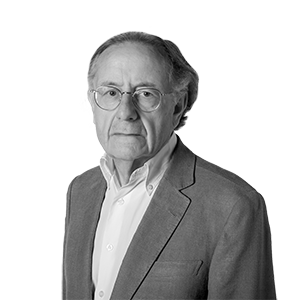

1. Interpret. Since the death of Pope Francis, the Vatican has been permanently on the front pages of the media, with a constant display of opinion pieces and such a notable absence of critical insight that it seems to have completely normalized what, in the light of modern critical rationality, should be the dark areas of the Catholic Church. Male supremacy, that is, the exclusion of women from both royal and sacramental power. Aristocratic logic: the cardinals, a tiny number of people, handpicked by previous popes, assuming the representation of hundreds of millions of citizens to elect their leader, with Catholics having no say. And consequently, secrecy, a prelude to impunity, as a principle and value that marks the ritual of the conclave: the cardinals' enclosure in the Sistine Chapel, with the smoke from the chimney as the only instrument of communication with the outside world, as if it were a guarantee of feeling God at the time of making the decision.
None of this is surprising at this point in history. The Church continues to operate freely, regardless of the changes in freedoms and recognition in contemporary societies. And the critical spirit inherent in free societies is irrelevant in those who proclaim themselves bearers of the word of God. The front pages of the Western press have been filled with Vatican news every day, turning Vatican Square into a permanent spectacle. It's hard to understand why, in increasingly secularized societies, there isn't more demand for such an important organization that continues to resist empowering women. And that doesn't even consider signaling a change in this regressive dynamic. And that makes secrecy—that is, the evasion of responsibility—its main value.
Although in many countries—Catalonia among them—religious practice has declined significantly, it is clear that the Catholic Church continues to hold power in the world, reinforced by a unity that makes it powerful in the face of the multiplicity of Christian religions, branches fallen from the same tree, called Protestant. But there is also no doubt that its attitude would justify challenges from the perspective of freedoms and, therefore, respect for individual autonomy. The distance between the hierarchy and believers is evident. However, what cannot be denied is that it maintains its ability to interpret the moments. And part of the impact of these days comes from that.
2. Resistance. What was at stake? A choice between continuing the populist path pioneered by Pope Francis, striking in his rhetorical expression but, it must be said, with limited effects on Vatican practice, and the reaction of the most intransigent sectors—more locked in their own obsessions—who had long expressed their discomfort. Finding a solution, a trademark of the house, leaves everyone speechless. Leo XIV lacks the populist impulse of his predecessor, although he shares his sympathy and, at the same time, leaves the most radically conservative sectors in an awkward position, who, waiting to see what might happen, always owe it to themselves. The question will be, so that nothing changes. And yet, the Western media have taken the bait, for the greater glory of the Vatican. President Trump's proximity could have interesting countervailing effects, a tug-of-war that remains to be seen whether it will ever make the narcissistic inhabitant of the White House lose his temper, as he is completely unaware of the notion of limits. He has acted in a surprisingly uncritical way. A strange expression of the fear of God (or the Vatican) in a supposedly skeptical world.

